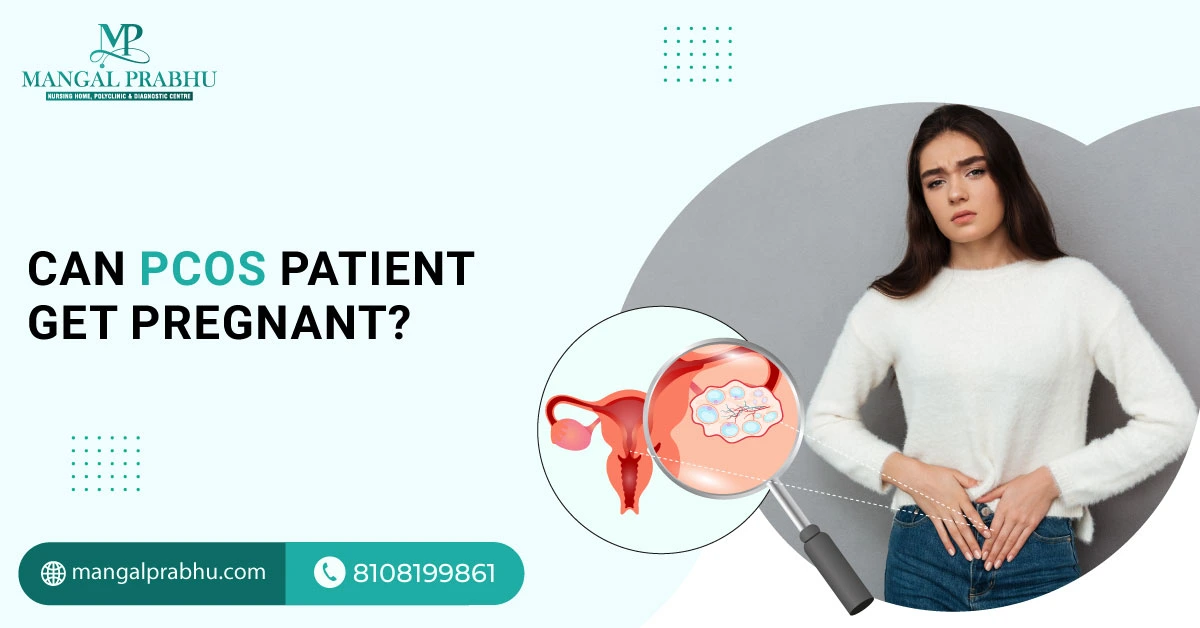
While women with PCOS might face difficulty getting pregnant, it’s a treatable condition. With medication and lifestyle changes, you can conceive. Women are advised to get PCOS treatment in Navi Mumbai to improve their chances of pregnancy. Let’s take a detailed look at “Can a PCOS patient get pregnant”? And how PCOS is managed in women planning pregnancy.
Can PCOS Patients Get Pregnant?
Polycystic Ovarian Syndrome (PCOS) is a hormonal condition that disrupts a woman’s ovulation cycle. Normally, your ovaries release an egg every month during your ovulation cycle. In PCOS patients, the follicles do not release a mature egg, resulting in irregular periods. This also happens because of a hormonal imbalance.
PCOS results in increased production of androgens (male hormones) and reduced production of estrogen. This affects your fertility. If your follicles do not produce mature eggs, there’s no chance of fertilization. That said, even with PCOS, some women tend to ovulate. It may not be regularly, but occasionally. All you need to do is use an ovulation tracking kit to find the best time to try.
Treatment Options to Enhance Fertility
Here’s what your doctor may advise you if you are trying to conceive with PCOS:
i) Lifestyle Changes
If your BMI is above 30, focus on losing weight. Eat a nourishing diet and stay active. Losing just 5-10 percent of weight will be enough to restore your normal ovulation cycle. Additionally, mental stress can worsen symptoms. Practice meditation and yoga, and indulge in your hobbies to de-stress your mind.
ii) Medical Treatments
Your gynecologist in Navi Mumbai might recommend medication to stimulate your ovaries to produce and release a mature egg every month. You will be prescribed clomid or metformin (if you have insulin resistance with PCOS). The goal is to correct your disrupted ovulation cycle, which may eventually help you conceive.
iii) Assisted Reproductive Technology
If none of the above treatment options work, your last resort is Assisted Reproductive Technology (ART). It’s a collective name for treatments that involve sperm and egg fertilization outside your body. The most common ones are In Vitro Fertilization (IVF) and Intrauterine Insemination (IUI).
A fertility specialist will prescribe medication to stimulate your ovaries to release eggs. These are collected through a minimally invasive surgical procedure. The retrieved eggs are combined with your partner’s sperm in an embryology lab. The fertilized eggs take 3-5 days to turn into an embryo. The last step is embryo transfer into your uterus. You can take a pregnancy test 10-12 days after implantation.
Tips for Managing PCOS While Trying to Conceive
Here’s what you can do to maximize your chances of natural conception despite PCOS.
- Eat low-glycemic index foods, such as green leafy vegetables and whole grains.
- Maintain a habit of exercising at least 20 minutes a day.
- Indulge in calming activities, like meditation and journaling.
- Use ovulation predictor kits to time your intercourse.
Consult your gynecologist to learn more about conception with this hormonal condition and get practical tips for managing PCOS symptoms.
